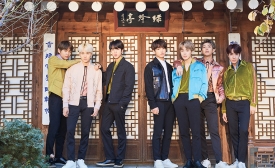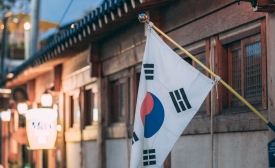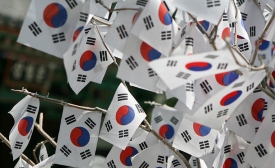k-pop


A popular South Korean musical group attended the 76th UN General Assembly as "Special Presidential Envoy for Future Generations and Culture."

CPD Research Fellow (2017-19) Diana Ingenhoff, Kadir Jun Ayhan (Hankuk Univ. of Foreign Studies Graduate School of International and Area Studies) and Efe Sevin (Towson Univ.) reveal key takeaways.

On building strong relationships between South Korea and neighbors in ASEAN and India.
Last week, Korean pop group Twice made its “official” debut in Japan, featuring the release of a Japanese-language best-of compilation and a showcase at Tokyo Gymnasium on July 2. [...] Japanese media has primarily focused on the fact three of Twice’s members are Japanese. [...] The Japanese members are shown as soft power superhumans, helping Japan’s image in Korea.

Headlines focused on the use of music diplomacy in bridging the gap between cultures
Changdong district, a relatively small residential commuter area, lies on the northern outskirts of Seoul. Home to a few hundred thousand people, it's an area that's growing but which has little cultural facilities or industry. [...] City planners hope that K-pop can do for Changdong what the Beatles did for Liverpool in the UK attracting both locals and tourists into the area, who could bring jobs and spending power with them.
Considering cultural exchange one of the most sustainable channels of diplomacy, President Park Geun-hye has been sparing no efforts in touting Korean culture, especially during her overseas trips. This year, marking the 130th anniversary of diplomatic relations with France, the South Korean government is determined to create synergy with hallyu, or the Korean Wave, to foster friendly relations with the European country.







